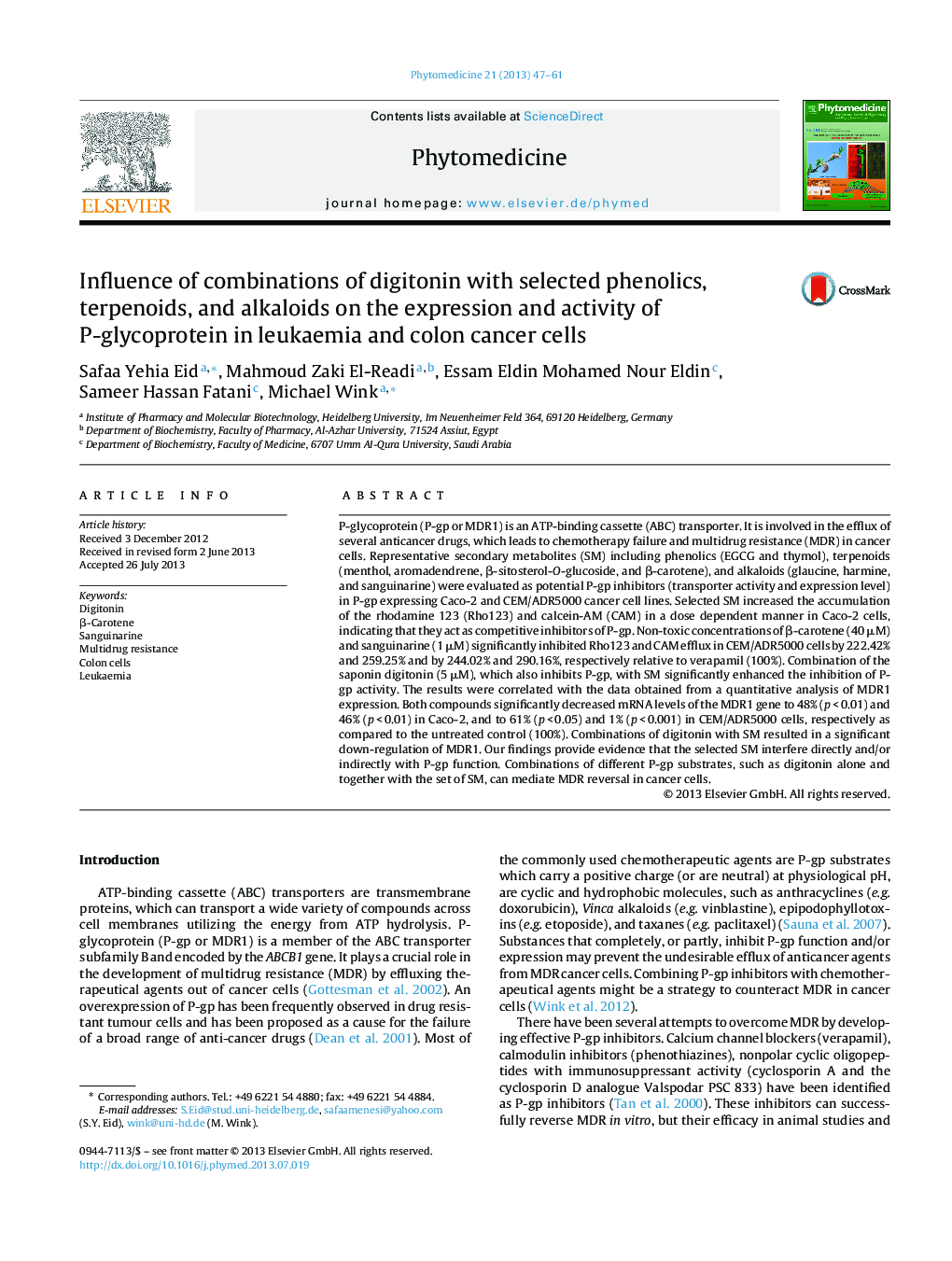| Article ID | Journal | Published Year | Pages | File Type |
|---|---|---|---|---|
| 5816671 | Phytomedicine | 2013 | 15 Pages |
Abstract
P-glycoprotein (P-gp or MDR1) is an ATP-binding cassette (ABC) transporter. It is involved in the efflux of several anticancer drugs, which leads to chemotherapy failure and multidrug resistance (MDR) in cancer cells. Representative secondary metabolites (SM) including phenolics (EGCG and thymol), terpenoids (menthol, aromadendrene, β-sitosterol-O-glucoside, and β-carotene), and alkaloids (glaucine, harmine, and sanguinarine) were evaluated as potential P-gp inhibitors (transporter activity and expression level) in P-gp expressing Caco-2 and CEM/ADR5000 cancer cell lines. Selected SM increased the accumulation of the rhodamine 123 (Rho123) and calcein-AM (CAM) in a dose dependent manner in Caco-2 cells, indicating that they act as competitive inhibitors of P-gp. Non-toxic concentrations of β-carotene (40 μM) and sanguinarine (1 μM) significantly inhibited Rho123 and CAM efflux in CEM/ADR5000 cells by 222.42% and 259.25% and by 244.02% and 290.16%, respectively relative to verapamil (100%). Combination of the saponin digitonin (5 μM), which also inhibits P-gp, with SM significantly enhanced the inhibition of P-gp activity. The results were correlated with the data obtained from a quantitative analysis of MDR1 expression. Both compounds significantly decreased mRNA levels of the MDR1 gene to 48% (p < 0.01) and 46% (p < 0.01) in Caco-2, and to 61% (p < 0.05) and 1% (p < 0.001) in CEM/ADR5000 cells, respectively as compared to the untreated control (100%). Combinations of digitonin with SM resulted in a significant down-regulation of MDR1. Our findings provide evidence that the selected SM interfere directly and/or indirectly with P-gp function. Combinations of different P-gp substrates, such as digitonin alone and together with the set of SM, can mediate MDR reversal in cancer cells.
Related Topics
Life Sciences
Biochemistry, Genetics and Molecular Biology
Clinical Biochemistry
Authors
Safaa Yehia Eid, Mahmoud Zaki El-Readi, Essam Eldin Mohamed Nour Eldin, Sameer Hassan Fatani, Michael Wink,
